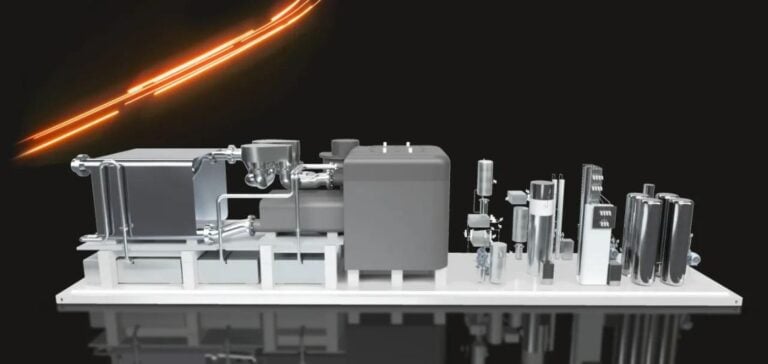Naarea, developer of a fast neutron micro-reactor using molten salts, has joined forces with the Centre National de la Recherche Scientifique (CNRS) and the Université Paris-Saclay. The aim is to create the Innovation Molten Salt Lab, a research laboratory dedicated to molten salt chemistry. The laboratory aims to become a European leader in research and development for molten-salt nuclear reactors and non-nuclear applications. The Molten Salt Lab Innovation will combine the 20-year expertise in molten salt chemistry of the Irène Joliot-Curie 2 Infinite Physics Laboratory (ICJLab) with Naarea’s technological expertise in materials, neutronics, safety analysis, and materials and fuel data. This collaboration aims to encourage collaborative working and capitalize on the innovations developed at Naarea, for the benefit of the European molten-salt reactor sector.
Project objectives and prospects
The new laboratory’s development plan includes research into molten-salt reactors and non-nuclear industrial applications such as metallurgy and concentrated solar energy. According to Naarea CEO Jean-Luc Alexandre, this partnership marks a significant step forward for the company, reinforcing its XAMR project and demonstrating France’s ability to lead the way in molten salt research at European level. Jean-Luc Moullet, CNRS Deputy Director General for Innovation, described the laboratory as an “ambitious project”, symbolizing the contribution of French research to the revitalization of the nuclear sector. For Camille Galap, President of Université Paris-Saclay, this collaboration is essential to meet the critical challenges of energy decarbonization, particularly for industry.
Naarea and the XAMR Project
Founded in 2020, Naarea won the France 2030 investment plan for innovative nuclear reactors. It is developing the XAMR, an advanced modular fast neutron reactor using molten salts. This micro-reactor can produce 40 MWe of electricity and 80 MWt of heat, burning plutonium and reusing long-lived nuclear waste to help close the fuel cycle. The bus-sized XAMR is designed to be deployed close to regions to meet local energy needs, without the need for a grid connection. Naarea aims to bring XAMR to market by 2030






















